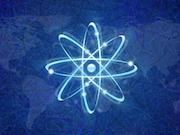The General Conference, held annually in Vienna, is an opportunity for all IAEA Member States to jointly consider matters related to the IAEA’s ongoing work, budget and priorities. This year over 1 600 participants attended the event either in-person or virtually, including delegates from 148 of the IAEA’s 173 Member States, and from international organizations, non-governmental organizations and the media.
In his opening statement on Monday IAEA Director General Rafael Mariano Grossi emphasized the need for global collaboration in order to effectively address common challenges – a need, he said, that the world had been starkly reminded of due to the ongoing COVID-19 pandemic. He highlighted the ZODIAC initiative, which he defined as the nuclear science and technology contribution to the early detection of pathogens that become zoonoses and could unleash pandemics. ZODIAC will strengthen the preparedness and capabilities of countries to rapidly detect and respond to outbreaks of zoonotic diseases, and aims to create a global network to foster scientific collaboration and share information. It will benefit from the expertise of the joint laboratories of the IAEA and the Food and Agriculture Organization of the United Nations (FAO) and partners such as the World Health Organization (WHO) and the World Organisation for Animal Health (OIE), as well as ongoing international initiatives working towards fighting zoonotic diseases. “This is a time for joint action, and this is a time where we are reminded about the importance of working together; about solutions that only multilateral efforts can bring about,” he said.
Conference delegates adopted a resolution on the implementation of the NPT (Treaty on the Non-Proliferation of Nuclear Weapons) safeguards agreement between the Agency and the Democratic People’s Republic of Korea, calling on the country, also known as North Korea, to come into full compliance with the NPT and to cooperate promptly with the IAEA in the full and effective implementation of IAEA comprehensive safeguards and abide by UN Security Council resolutions. Member States strongly support the IAEA’s continued enhanced readiness to play its essential role in verifying the DPRK’s nuclear programme. The Conference also adopted a resolution on the application of Agency safeguards in the Middle East.
Further resolutions were adopted on nuclear and radiation safety and nuclear security. The conference also adopted a resolution on staffing of the Agency’s secretariat, commending the wide range of measures implemented to improve the representation of women in the Professional and higher categories.
The General Conference approved the Agency’s Financial Statements for 2020, and Programme and Budget for 2022-2023.
IAEA resolutions and decisions will guide the IAEA’s implementation of activities in the coming year. The resolutions and decisions will be posted here as they become available.
By the end of the 65th General Conference, 80 Member States had pledged to the Technical Cooperation Fund for 2022. The total amount pledged against the 91,075,000 million euro Technical Cooperation Fund target for 2022 is 29,171,890 euros, representing 32.03% of the target.
The General Conference elected 11 countries to serve on the 35-member IAEA Board of Governors for the period 2021-2022. The newly elected Board members are Burundi, Colombia, the Czech Republic, Finland, Guatemala, Ireland, the Republic of Korea, Libya, Pakistan, Slovenia and Viet Nam.
The Conference also elected the Comptroller and Auditor General of India as the Agency’s new External Auditor for 2022-2027.
A total of 79 side-events took place during the week showcasing the range of activities underway across the IAEA’s diverse areas of work.
A two-day Scientific Forum on ‘Preparing for Zoonotic Outbreaks: the Role of Nuclear Science’ focused on ways of preventing, preparing and responding to diseases that transfer from animals to humans (zoonotic diseases). Speakers highlighted the need for closer global coordination, collaboration and communication towards scientific advancements in research, early detection and monitoring of these diseases. The Forum brought together experts, government representatives and academics, who recognized the IAEA’s Zoonotic Disease Integrated Action (ZODIAC) as an important and timely global initiative. They further elaborated on techniques for detecting pathogens and monitoring zoonoses; on the animal-human interface and ways of identifying emerging and re-emerging zoonoses, on the role of radiation techniques in dealing with the impact of zoonoses on human health, and on the IAEA's support to countries in this area.
High level speakers in the opening session included Qu Dongyu, Director General of the Food and Agriculture Organization of the United Nations (FAO), Tedros Adhanom Ghebreyesus, Director General of the World Health Organization (WHO), Monique Eloit, Director General of the World Organisation for Animal Health (OIE), Khalid Ait Taleb, Minister of Health of Morocco, Ermira Gjeci, Deputy Minister of Agriculture and Rural Development of Albania, Karen Najarro, Vice Minister of Foreign Affairs of Honduras and Amadou Alpha Sall, Director of the Pasteur Institute in Dakar, Senegal. Jane Goodall, Founder of the Jane Goodall Institute, and UN Messenger of Peace, and Christian Happi, Director of the African Centre of Excellence for Genomics of Infectious Diseases gave keynote addresses.
During the week, delegates from 26 IAEA Member States also took part in guided tours on offer of the IAEA laboratories at the Agency’s headquarters in Vienna and in Seibersdorf, Austria.


